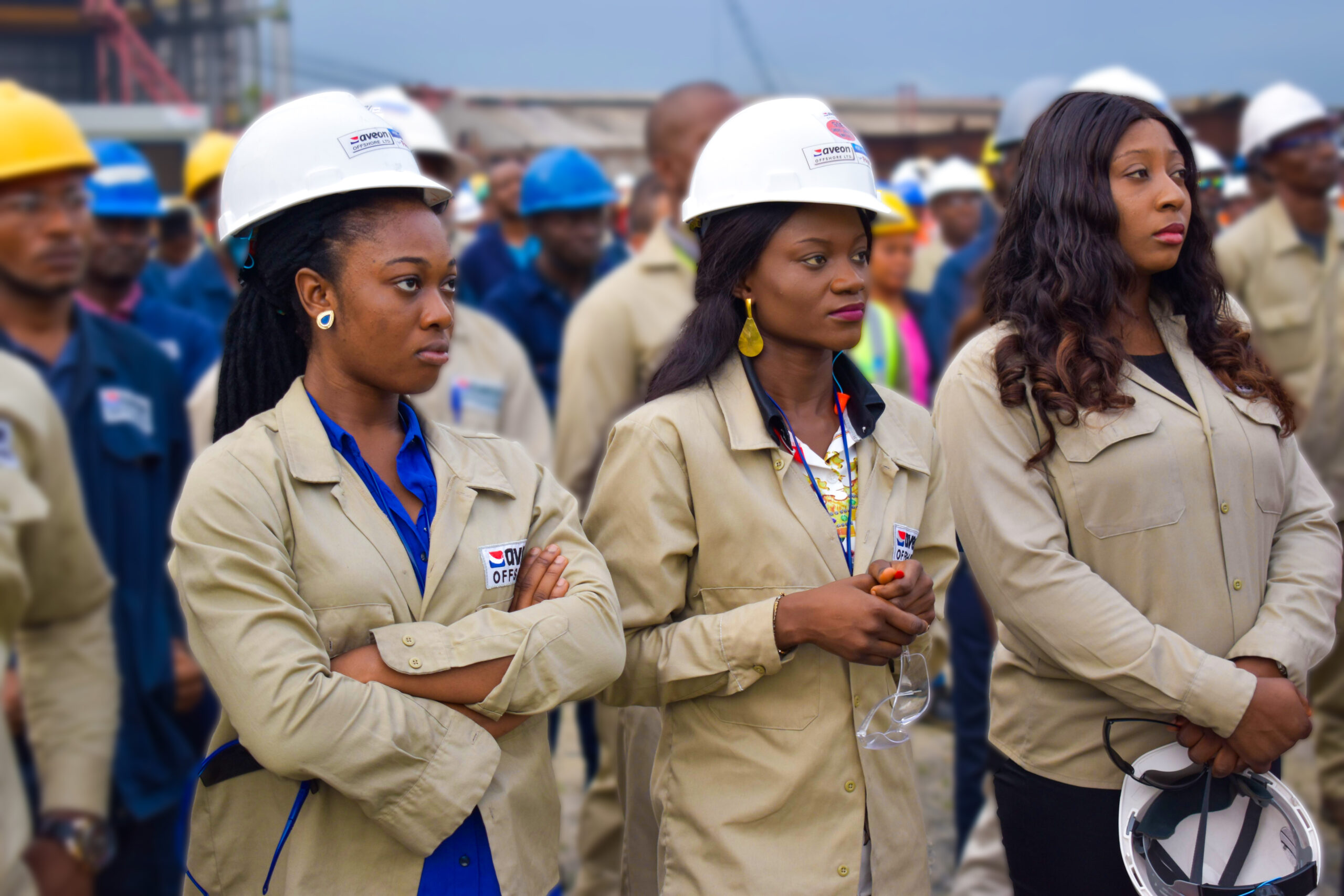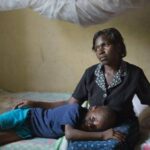African Women are increasingly powering the green economy, rising as solar technicians, entrepreneurs, and industry leaders. As renewable energy grows, targeted training and shifting workforce trends are driving greater inclusion.
By Bonface Orucho
Women are playing an increasingly vital role in Africa’s green economy, particularly in the solar energy sector.
According to Shortlist, a talent recruitment company, the green economy is expected to generate 3.3 million new direct jobs across the continent by 2030.
As the sector expands, women are stepping into roles as solar technicians, entrepreneurs in renewable energy startups, and leaders in sustainability-focused initiatives—driving both innovation and inclusion in the industry.
A testament to this progress is the recent appointment of Nigerian sustainability expert Ivie Ehanmo to the advisory board of the Renewable Energy Association of Nigeria (REAN).
Ehanmo sees her appointment as more than just personal recognition; she believes it underscores the growing leadership role of women in the clean energy transition.
“It is a testament to my expertise, knowledge, and experience in the renewable energy sector in Nigeria, across Africa, and globally, which will play a key role in driving the association towards achieving its goals,” she explained.
Her appointment reflects a larger trend of women making strides in the renewable energy sector. A 2024 report by Shortlist, ‘Women in Clean Energy,’ highlights that women’s representation in full-time clean energy jobs has jumped four-fold since 2010 to 32%—a significant jump from less than 8%.
Women’s presence in leadership roles in Africa’s green economy has also grown. In 2010, women held less than 5% of executive positions; today, that figure has risen to 25%. The shift is evident at other levels, too, with women now occupying 26% of lower and middle managerial roles in clean energy companies.
This steady rise is driven by rapid investments in renewables and changing energy consumption patterns, which have collectively expanded job opportunities within the green economy.
A separate 2024 joint report by Shortlist, FSD Africa, and the Boston Consulting Group, ‘Africa’s Green Economy,’ projected that Africa’s renewable energy sector alone could generate two million new jobs by 2030, with solar energy leading the way.
Nigeria, South Africa, and Kenya present the highest job creation potential, with Kenya expected to generate up to 240,000 green jobs — including 11,000 in solar energy.
While this growth presents a major opportunity in a region where unemployment remains a challenge, studies highlight a rising demand for skilled workers.
To bridge this gap, several women-focused skilling initiatives are already underway across the continent.
Over the past six years, Shortlist has rolled out gender-focused talent programs — such as the Women in Green Jobs program — just one initiative that has helped to boost female representation in the sector to 66%, more than double the industry average of 32%.
Emerging startups in the sector are leading the charge. In Zambia, WidEnergy Africa, a pay-as-you-go solar systems company for rural households, boasts a 60% female workforce.
Other notable initiatives include WomHub, a South African co-working and e-learning space designed to connect and support women entrepreneurs and leaders, both in person and virtually. Solar Sister, a grassroots network training women to sell solar products in Nigeria, Tanzania, and Uganda, is also a gret example of these startups.
Meanwhile, Women in Sustainable Energy and Entrepreneurship (WISEE) is bringing together women across the renewable energy sector, including engineers, technicians, trainers, entrepreneurs, energy practitioners, and consultants.
According to its website, the Kenyan-headquartered organization has trained over 1,000 women in solar installation and safety protocols.
The impact of these initiatives goes beyond employment. The 2024 Shortlist report reveals that women placed through such programs earn, on average, 95% of their male counterparts’ salaries — signaling progress toward wage parity.
However, experts argue that achieving lasting, meaningful inclusion in the clean energy sector will require deliberate action from policymakers and investors.
“Stakeholders should expand leadership training and mentorship programs to equip women with the skills and networks to advance. Enforcing equal pay policies will also be crucial in eliminating wage gaps,” Martha Wangari, a female employee at a Tanzanian Ag-Energy company, is quoted as saying in the report.
The International Renewable Energy Agency (IRENA) projects that 100 million new and improved green jobs will be created globally by 2050. Meanwhile, UN Women estimates that closing the gender gap in employment could add up to US$28 trillion to the global GDP.
bird story agency
African women are increasingly becoming integral to the continent's green economy, particularly in the solar energy sector. With the green economy projected to create 3.3 million new jobs in Africa by 2030, women are undertaking roles as solar technicians, entrepreneurs, and leaders in sustainability, promoting innovation and inclusion. Notable progress includes Nigerian sustainability expert Ivie Ehanmo's appointment to the Renewable Energy Association of Nigeria's advisory board, highlighting the growing leadership role of women in clean energy.
A 2024 report by Shortlist indicates that women's representation in full-time clean energy roles has increased significantly since 2010. In Africa, women's executive roles have grown from less than 5% to 25%, while they now occupy 26% of managerial roles. Rising investments in renewable energy create further job opportunities, with Nigeria, South Africa, and Kenya leading in job creation potential. Initiatives like the Women in Green Jobs program, WomHub, and Solar Sister are crucial in bridging skills gaps and boosting female participation in the sector.
These programs are positively impacting wage parity, with women earning 95% of their male counterparts' salaries. Nevertheless, experts emphasize the need for policymakers to support leadership training, mentorship, and equal pay policies to ensure sustainable inclusion. The International Renewable Energy Agency forecasts 100 million new green jobs globally by 2050, with the potential to significantly boost global GDP by addressing the gender employment gap.






